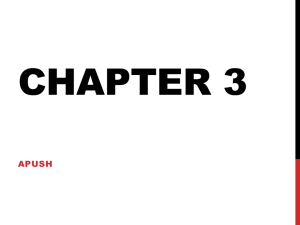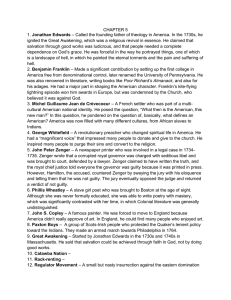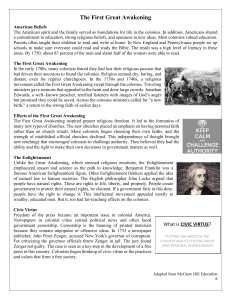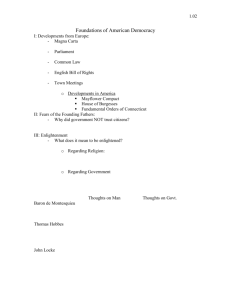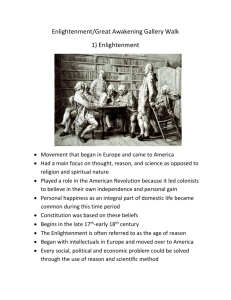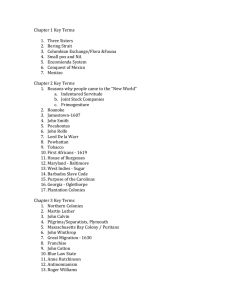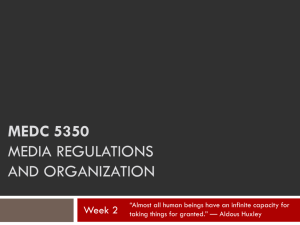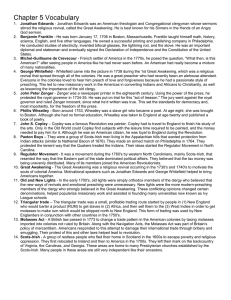Representative Government Origins
advertisement
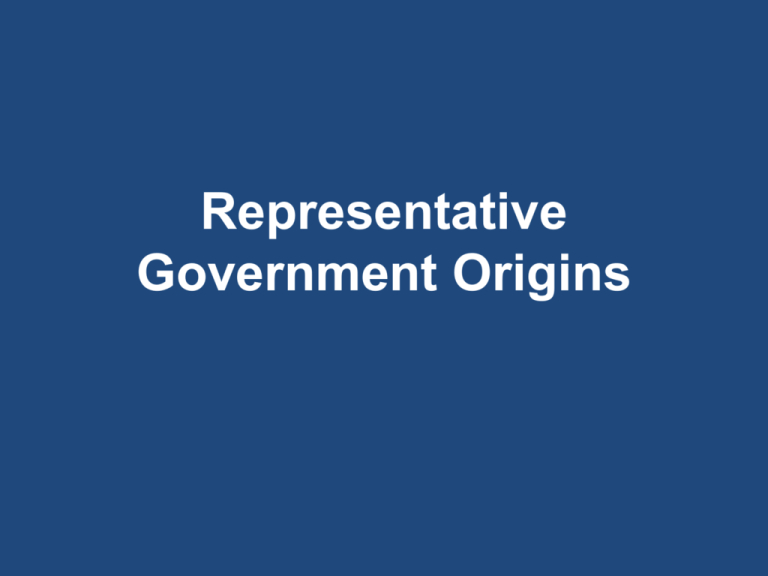
Representative Government Origins Magna Carta • The idea that government was not all powerful first appeared in the document • King John signed it in 1215 • It established the principle of limited government in which the power of the king, or government was limited • The idea of trial by jury came from this document English Bill of Rights • Guaranteed certain basic rights to all citizens in England (1689) • It became part of English law that the American colonists shared. • It later inspired the people who created the American Bill of Rights Great Awakening • A religious revival that swept through the colonies between 1720s and 1740s • Jonathan Edwards and George Whitefield helped spread it • Encouraged religious freedom • Religious beliefs contributed to the growth of representative government • Colonists were urged to get more involved and study the Bible themselves Great Awakening continued • Emphasized people’s equality in the eyes of God • Proclaimed “salvation for all” which democratized the protestant faith • Churches welcomed women, African Americans, and Native Americans • Inspires colonists to help others Freedom of the Press • John Peter Zenger published a newspaper accusing the governor of New York in corruption. • The governor put Zenger on trial • Zenger won his case when his lawyer proved the statements were true • This led to an important role in the development of freedom of the press an important aspect of representative government Public Education • Puritans passed a law in 1647 that public schools would be supported by taxes
